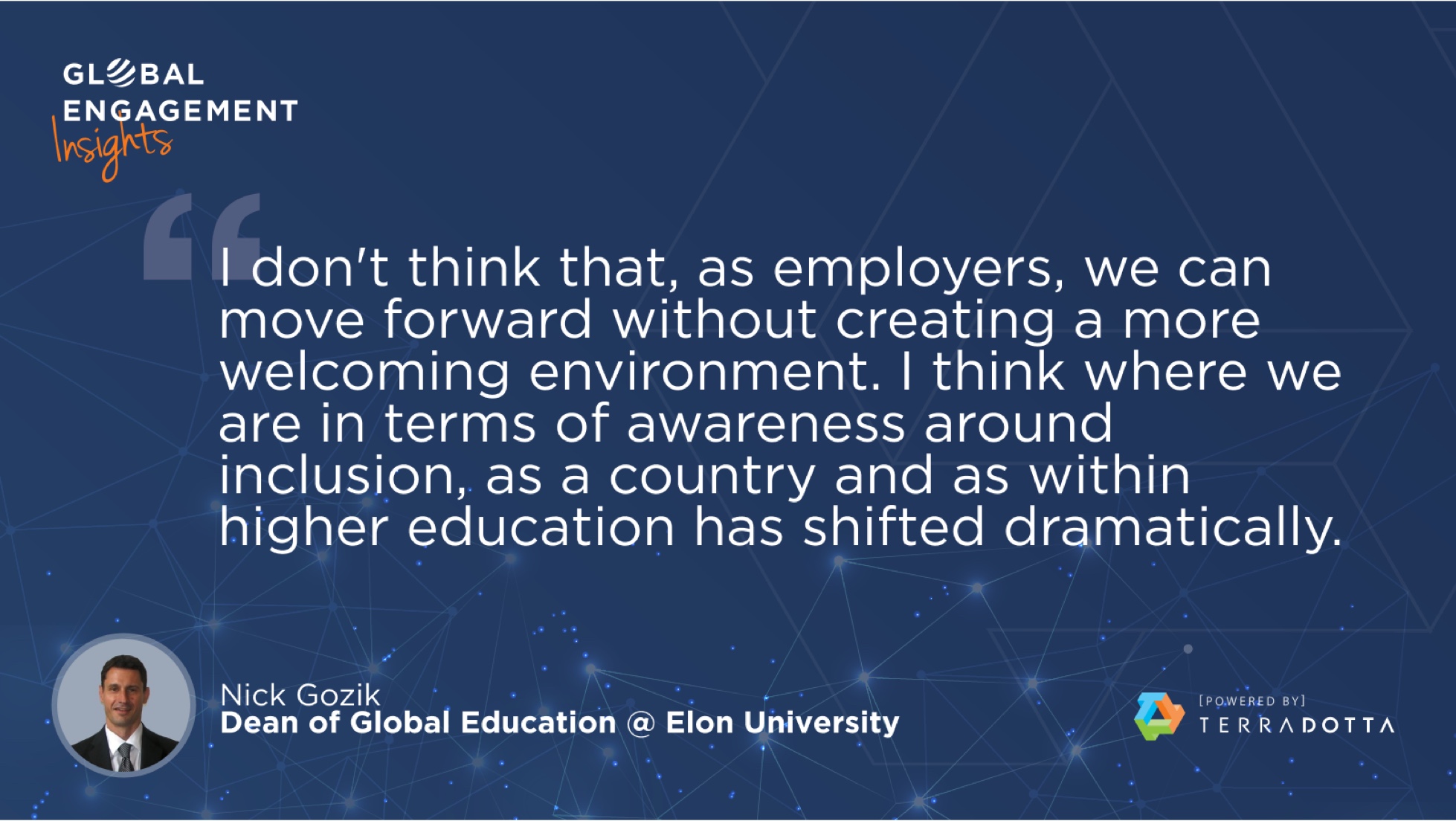Being part of the education system has always been prestigious and is a confirmation of one's excellence. But, as with every business, universities must look outside the box to find the best candidates. In addition, the current business climate forces educational institutions to redefine hiring as employees' perceptions and employment preferences have changed.
Therefore, we invited Nick Gozik, Dean of Global Education at Elon University, to discuss the challenges of building an international education office team. Nick and our host Travis Ulrich discuss how universities approach hiring, onboarding, and employee retention. They also touch upon flexibility and remote work and reveal whether they are possible in systems such as university administrations.
Finally, Nick explains why educational institutions must work on diversity and inclusion to attract the best candidates. Nick also shares details of two e-books he’s currently working on. One is about building a culture that nurtures diversity, enabling staff to give their best self to the organization, and the other is about partnerships between institutions on a local and international level.
Name: Nick Gozik
What he does: Nick is the dean of global education at Elon University.
Company: Elon University
Noteworthy: Prior to joining Elon University, where he focuses on international education and global programming, Nick was at Boston College, Duke University, and New York University.
Where to find Nick: LinkedIn
“When I started, you felt so lucky to get a position. It was so competitive to get into an international office. [...]
With the pandemic, we've seen a couple of trends. We’ve seen more people in higher education and within international education say, ‘Maybe I’m gonna try something different. I’m going to go into another part of higher education, use the skills I have, and go into another industry.’
And some of that was prompted by the pandemic being hard. It was also attractive in terms of the salaries being offered and the flexibility that could be afforded in other industries or other parts of higher education. [...]
The second is that the pools are smaller than we had in the past. From a hiring perspective, we’ve been fortunate to get candidates that we're happy with. But it has been a different pool, and it forced us to think differently about how we recruit and evaluate candidates and how we attract the best candidates and folks so that they want to stay.”
“One thing we see candidates looking for is flexibility; as an institution, we've been slower to move in that direction. And I think a lot of universities have because we don't want to give up what we perceive to be the secret sauce — what makes us work well, and what allows us to be there and present for students whom we hope to serve. [...]
One of the things that we have been piloting is remote work one day a week or two days a week. I've got staff who have children or other commitments; so, being flexible with them on those levels. That is not the same level you're seeing in other fields like tech, where people may be working remotely 100% of the time or 80% of the time.
Salaries are also hard for campuses. If you're in a state system, your salaries may be pegged to salary levels, and it may require state funding to increase.”
“Diversity, equity, and inclusion are part of our strategic plan as an institution. We have a 52-point diversity, equity, and inclusion plan. [...] We've been providing more training. Right now, we're working with our supervisors [...], and we are working through this to make sure that our supervisors are in a better position to relate to different staff.
And then, more recently, we’ve been working with our Division of Inclusive Excellence, and starting from a place of vulnerability to be quite honest and ask ourselves, ‘Have we allowed everyone to bring their authentic self to the workplace?’ And the answer is we've done a good job in some places — but not in all places.
And we’ve had staff who are underrepresented or in minority groups who have not felt like they’ve been able to bring their full self to the office. So we put out that question, ‘What does it mean to bring one's full self to the office? And then how do we move forward with that?’
And so, in the next year, we’re going to be focusing on how we tackle those two questions. What I like about this is that we’ve got a number of new staff members, and they’re part of these conversations. They’re listening and hearing us talk about and contributing to this; so, they’re part of those solutions.”
